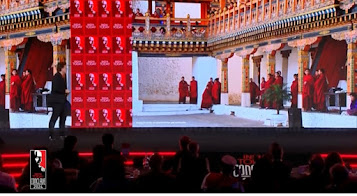As a young boy, I found myself captivated by the exquisite designs crafted by architects and artists. I had a penchant for small things and artistic expressions, particularly in books, where I would spend hours absorbed in images and photographs, especially those depicting nature, landscapes, cultural landmarks, and people, I developed a deep appreciation for aesthetics.
Excelling in subjects like science and mathematics during my seventh-grade years, I always aspired to become an engineer without a much understanding of the profession.
Fast forward, when I was in my twelfth grade, my interest shifted towards urban planning, driven by my growing comprehension of engineering concepts as I was seriously pursuing a computer science stream with mathematics, and physics as my main subjects.
Determined to realize my aspirations, I dedicated myself to intense study, facing numerous odds and difficulty along the way, I did not give up. With unwavering faith in my abilities, I confidently approached my board exams. I was prepared more than to take the exam. Though my results weren't too bad, I applied for scholarships, I ultimately found myself unable to pursue studies outside, leading me to settle for a teaching college.
Embarking on a four-year Bachelor of Education program in Chemistry and IT, I embraced my role not only as a chemistry teacher but also as a mentor and community leader.
Engaging in various social initiatives, including sanitation and water projects both within and beyond the school, I actively contributed to national projects and connected with global networks to support educational endeavors for my school and students.
Central to my teaching philosophy was instilling in my students a shared vision for Bhutan's future, emphasizing the importance of social cohesion and national development. Through discussions, showing them short clips and documentaries on architectural projects, I sought to inspire them to identify opportunities for contributing to our country's progress as engineers, architects, and planners in greater ways.
I would like them not just to feel proud of their work but also to proudly showcase their engineering marvel to the world.
I firmly believed that a nation's advancement lies both in grand infrastructure projects and in the collective efforts of citizens towards a common goal. Encouraging critical thinking and a sense of responsibility, I urged my students to address issues such as corruption and societal challenges, stressing the significance of national service and civic duty.
Now, as I embark on the realization of my dream project, the Gelephu Mindful City, I am filled with hope for the future. Envisioning my students as future leaders of Bhutan's development, I anticipate them carrying the torch of innovation and excellence, shaping the country's legacy on the global stage.
With projects like Gelephu serving as testament to Bhutanese ingenuity, I am confident in our ability to create a history that reflects our values and aspirations.
Image: Architect Bjarke Ingels video











Comments
Post a Comment